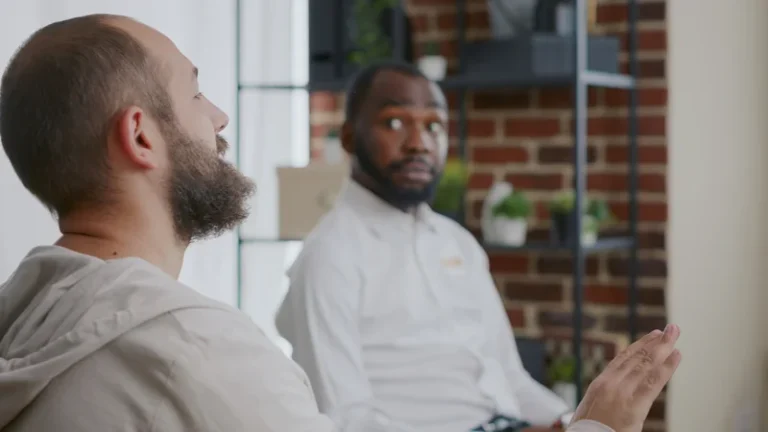The advantages of support groups and sponsorship are immense. It offers a sense of belonging, provides a non-judgmental atmosphere to discuss issues and progress, and offers opportunities to heal and develop. Brian Albert is a Boston police officer, whose hosted the house party where O’Keefe’s body was found in the front yard. In addition, you might benefit from connecting with others in a support group and sharing resources.
- John’s key responsibilities include maintaining the day-to-day operations from both a clinical and housing perspective.
- ” Even when we don’t realize it, it’s this type of thinking that perpetuates further isolation, when truly we all go through pain.
- Others need to see that recovery is not easy, but it is possible.
- My advice as someone who does not feel comfortable or trusting in the company of strangers, is to trust the staff and faculty.
- If someone in the room really resonated with your story, they may try to talk to you when the AA or NA meeting wraps up.
The Impact of Personal Recovery Stories on Readers
The experience of having severe COVID-19 might be another factor. People with severe symptoms of COVID-19 often need to be treated in a hospital intensive care unit. This can result in extreme weakness and post-traumatic stress disorder, a mental health condition triggered by a terrifying event. “I would tell them my story and hope they would be able to see how recovery has brought me from the brink of death to a fulfilling and healthy life.
- In conclusion, storytelling plays a major role in addiction recovery by providing therapeutic benefits, and breaking down stigma.
- Telling your story can also be frightening if you have trouble opening up to others.
- Brie graduated as a high school valedictorian with a major in Health Technologies and continued her studies at Springfield Technical Community College with a focus on healthcare.
- Nobody in AA or NA simply woke up one day and stopped using.
Find The Best Way To Share It
If other people’s stories can have this power, then so can yours. In conclusion, striking the balance between truth and inspiration is essential when sharing recovery stories. By discussing both, individuals can break the stigma, support others, and motivate change. In addiction recovery, support groups and sponsorship are key.
- Within thirty minutes of being introduced, you know their whole life story and you wonder why they’re sharing so much.
- Butch also maintained a private practice, specializing in family of origin work and addiction populations.
- Sharing struggles and joys with those who understand helps build a supportive network that encourages growth and healing.
- By sharing their stories, individuals contribute to the larger narrative of addiction recovery, offering hope, support, and encouragement.
Wednesday morning top stories: Man faces charges after death of resident at Lubbock State Supported Living Center

It lets them know they are not alone in their struggles and provides a sense of hope for their own recovery. Sharing recovery stories can also break down societal stigmas around addiction and mental health. By openly discussing personal experiences related to addiction, and highlighting successful recovery, preconceived ideas about substance abuse disorders can be challenged. This leads to more understanding, compassion, and acceptance in society. Sharing personal recovery stories not only helps others but also provides significant therapeutic benefits for storytellers.
So you can use this confidence going forward and know that if you got through that, you can get through anything. Brie joined the Amethyst Recovery team in 2017 as an HR assistant. Her over 15 years’ experience working in healthcare administration and management quickly launched her into a leadership role. Always seek the advice of a physician or other qualified health provider with any questions you may have regarding a medical condition. Never disregard professional medical advice or delay in seeking it because of something you have read on this website.

Charitable Care & Financial Assistance
- You may have spent years deceiving and causing stress, so don’t expect to rebuild relationships overnight.
- Are you making it seem like using drugs was fun and exciting?
- Talking about mental illness, stigma and recovery can give others hope and give you a voice to create change.
- Recovery is an emotional journey, and it can be tempting to embellish your story for dramatic effect.
- There are also many other benefits you may have experienced, such as new jobs, a new love, and repaired relationships with friends and family.
- In recent years, ketamine has transitioned from being primarily recognized as a veterinary anesthetic and a recreational drug to becoming a groundbreaking treatment for depression.
By sharing their stories, AA members create a sense of community. It also helps individuals break through the sense of being sharing your story in recovery alone in addiction. Hearing stories of others who have recovered encourages people to believe that recovery is possible.

Submit To The NAMI Blog
Stay away from placing blame or making others feel like their addiction is their fault. Before you share your recovery details, you should consider your purpose in wanting to share. This will help you determine your audience and the best way to communicate your message. When we share our stories, we have a limited time frame in which we can engage others attention. It is simply not possible (nor appropriate) to recount every single detail of our lives. The last thing anyone wants (or needs) is to re-live their trauma over and over.

Levels of Care
If you’re still in the early or middle stages of your recovery, resurfacing these feelings could become triggering and set you back in your journey. Assuming you are not sharing your story with a qualified counsellor, but with others who suffer from addiction, the following tips will help you to keep your story constructive and helpful. Therefore, we suggest that you discuss this with your counsellor, healthcare provider or sponsor before taking the step of speaking openly about yourself in front of others. If you don’t feel comfortable or confident enough, you may not be ready.

